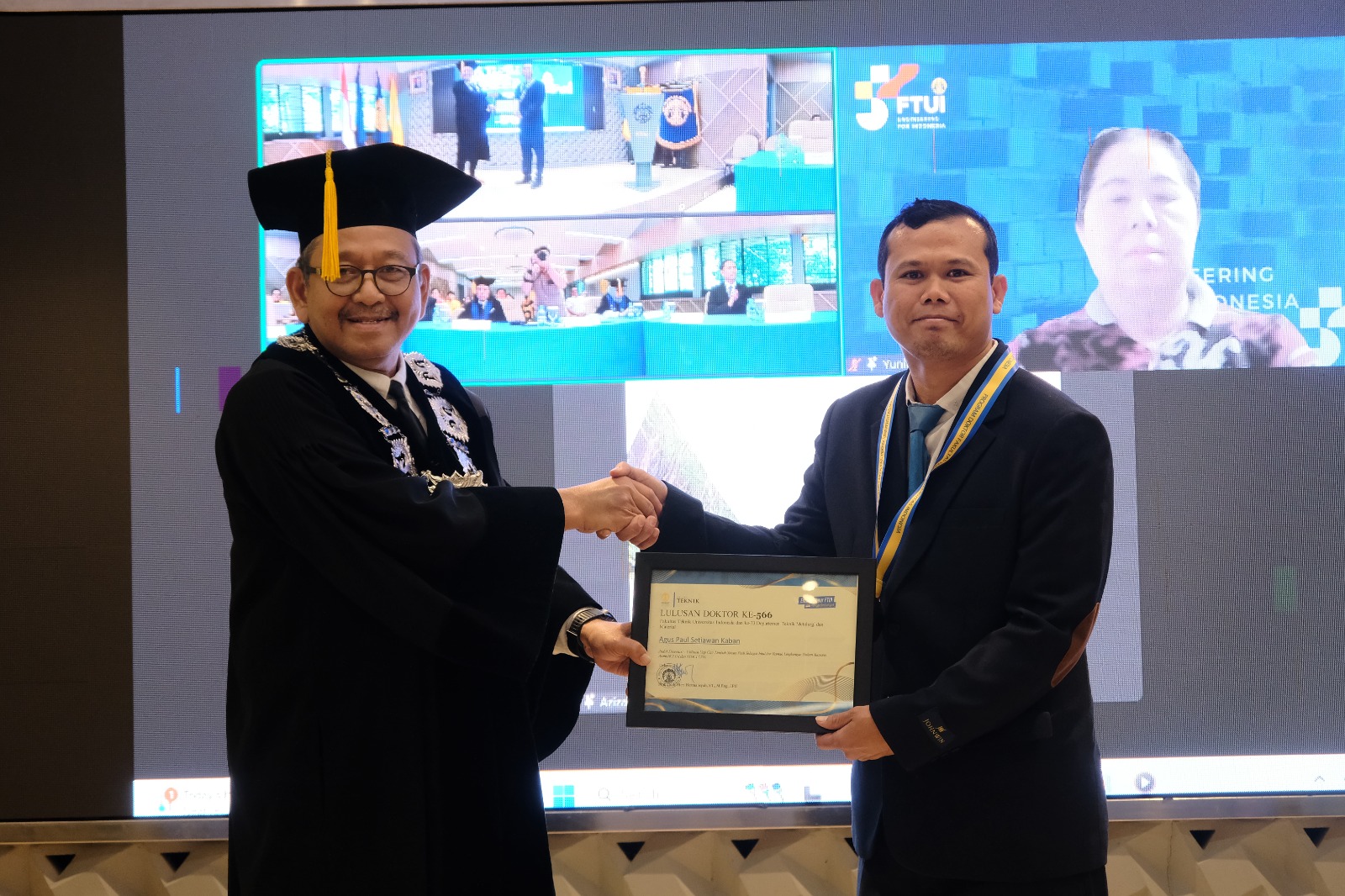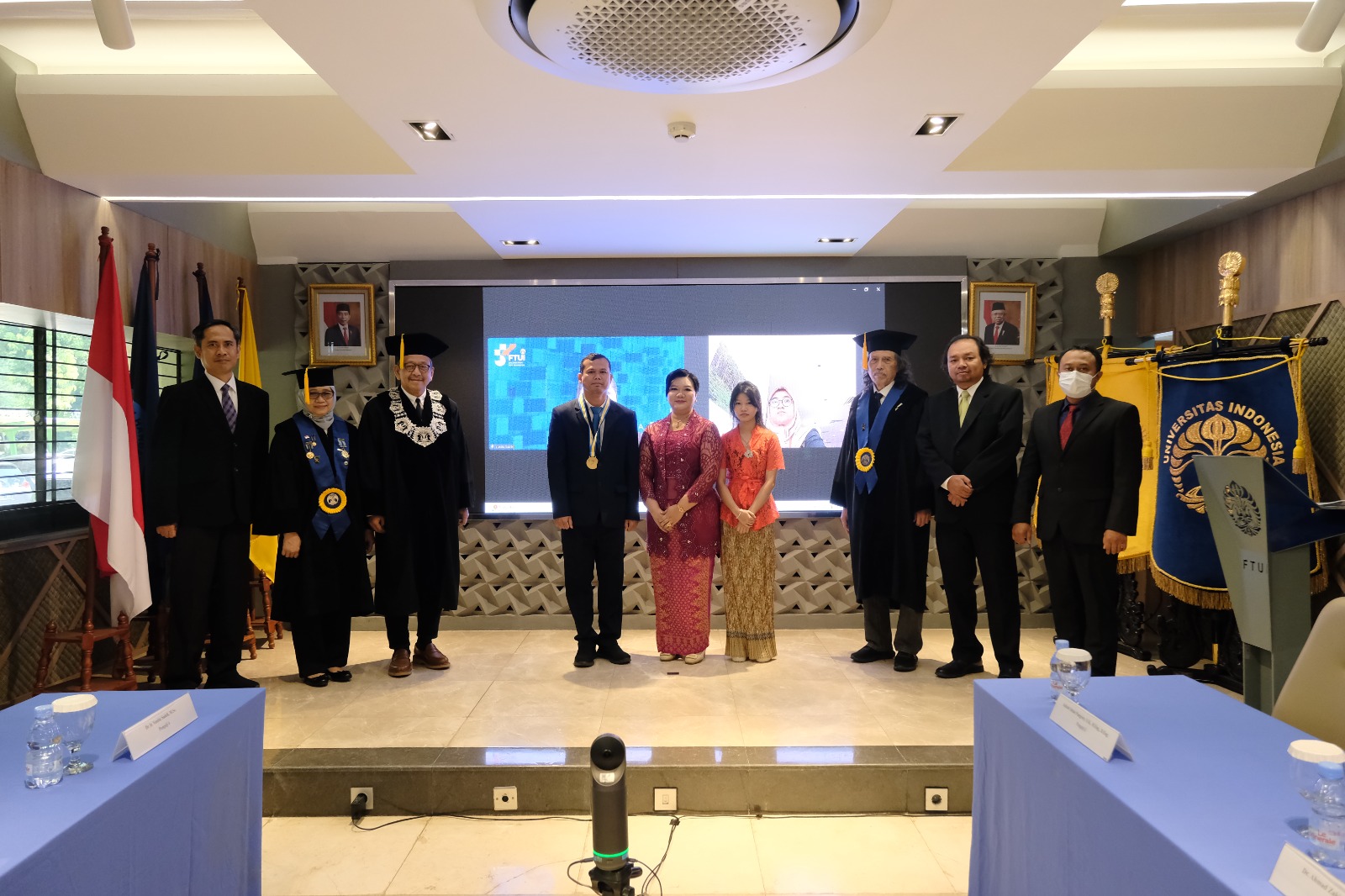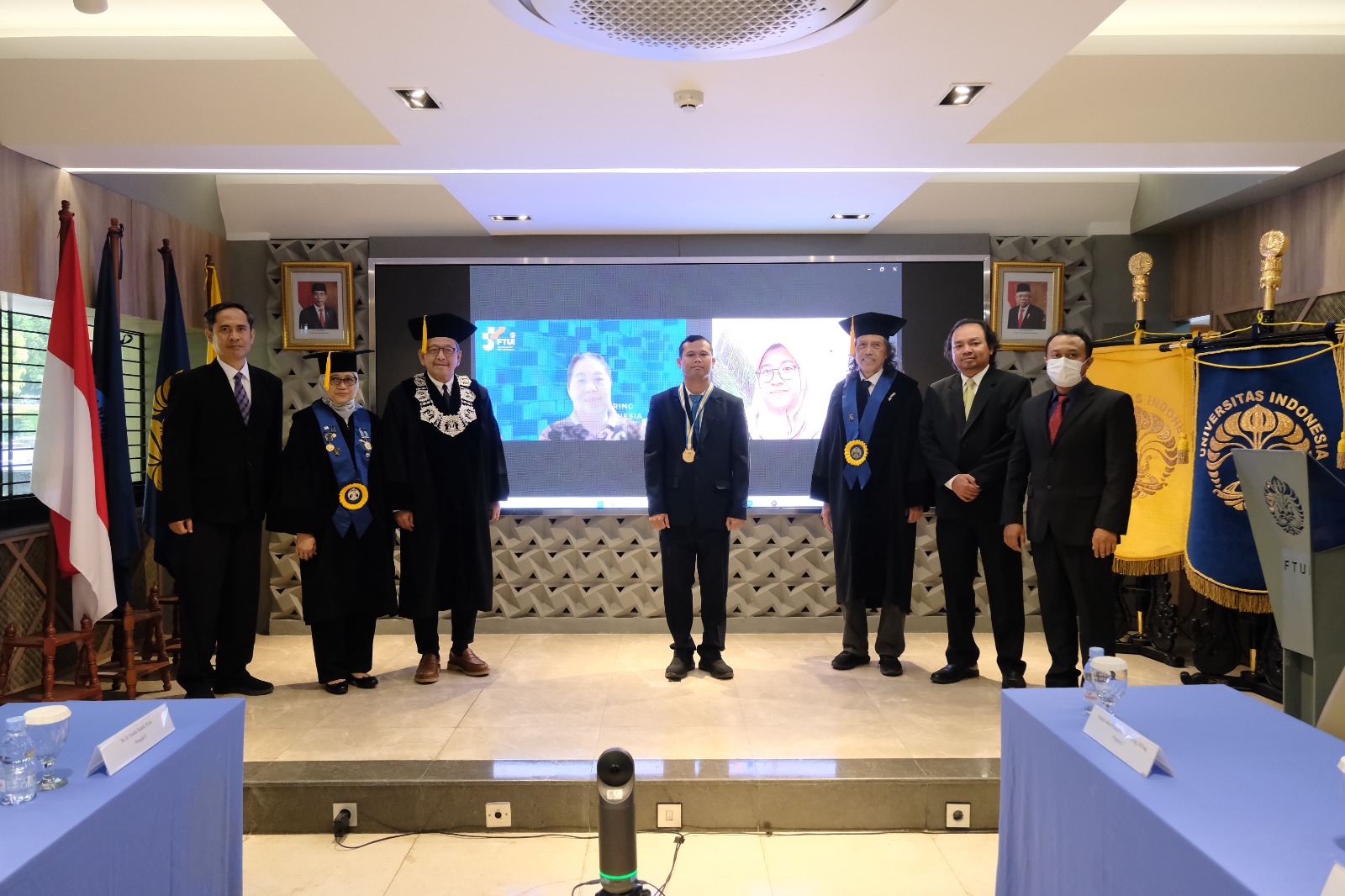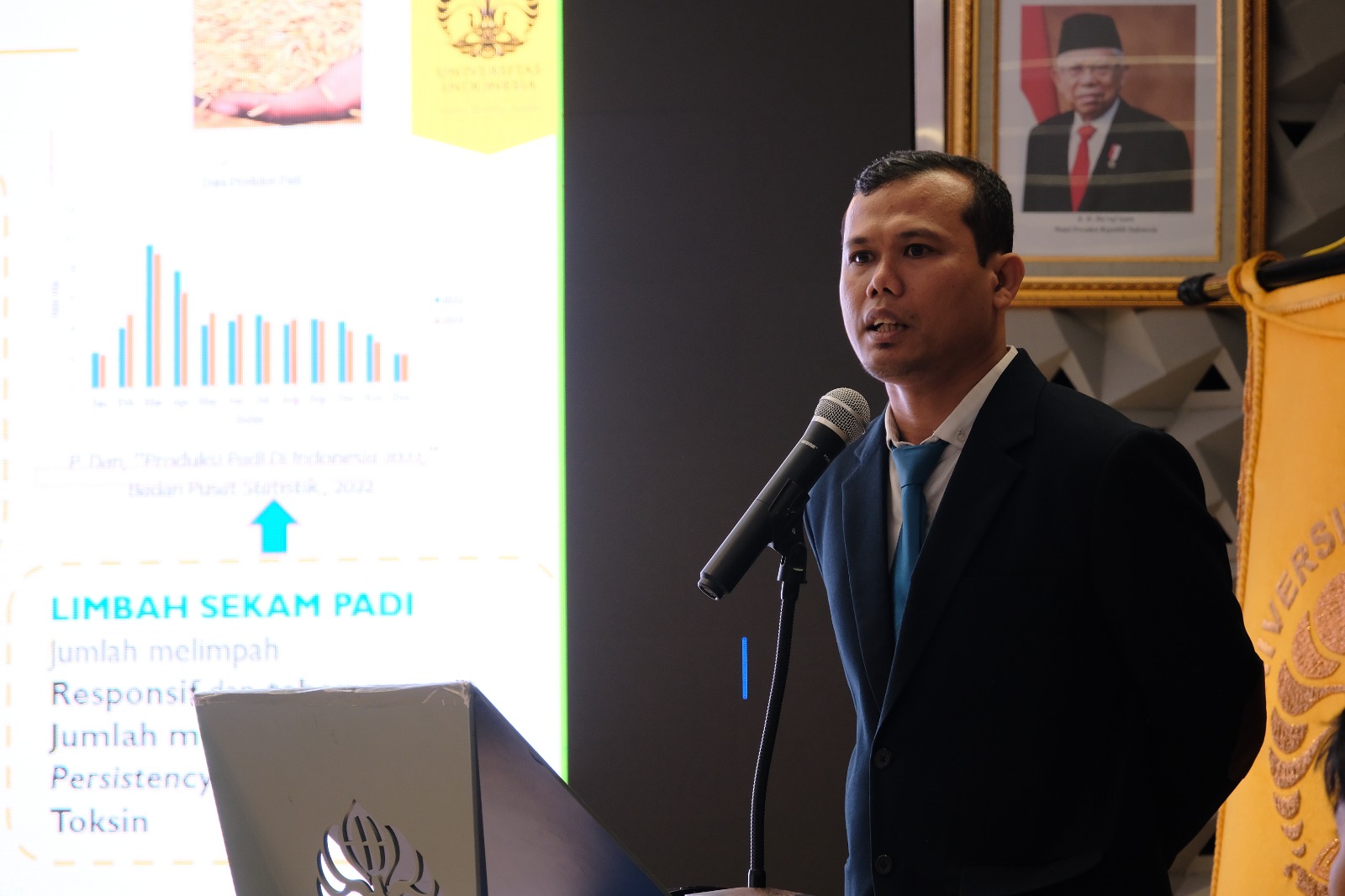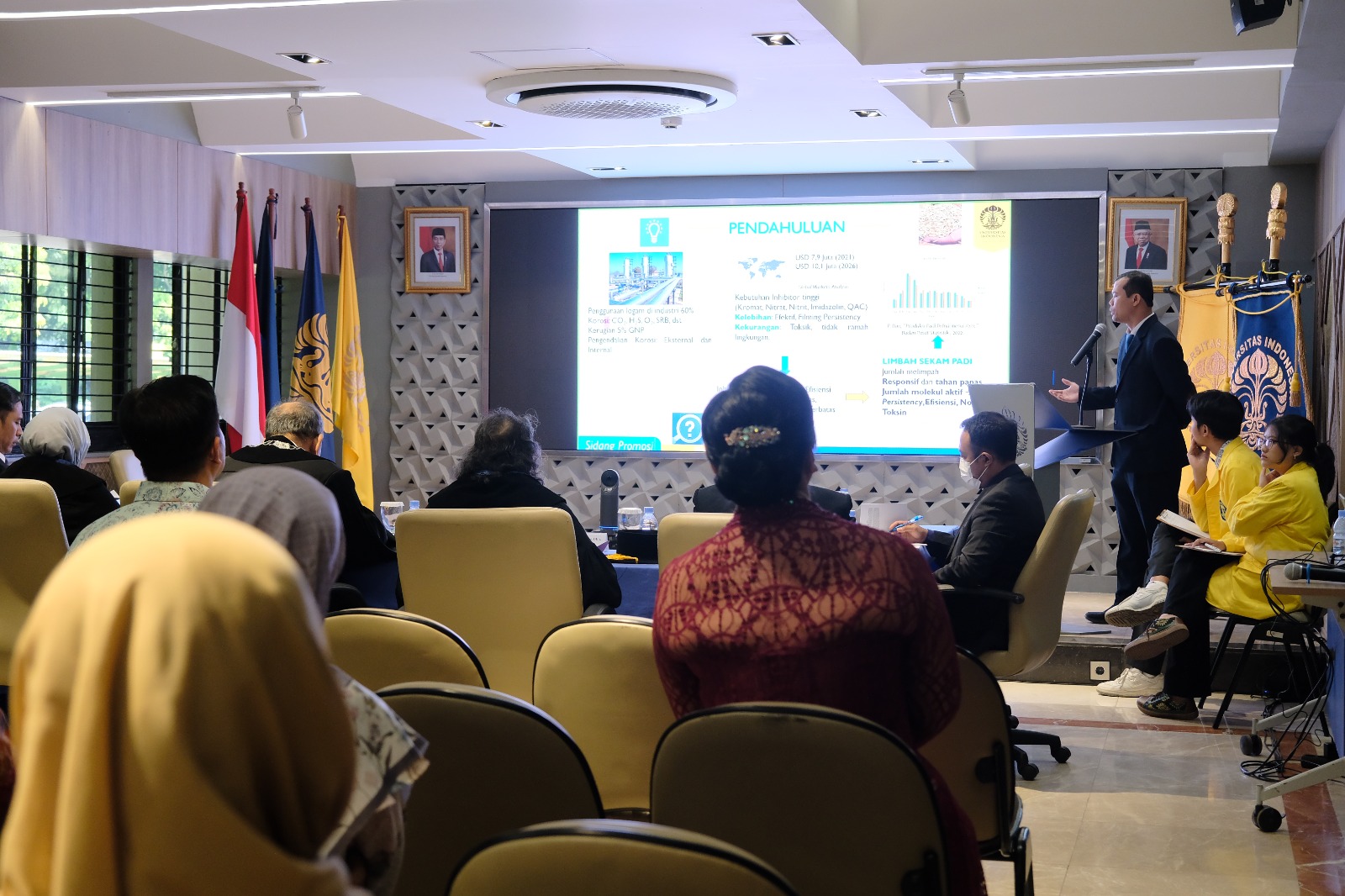Agus Paul Setiawan Kaban presented his research in the Smart Meeting Room, Faculty of Engineering, Universitas Indonesia, on August 6, 2024. Through his dissertation titled *Utilization of Rice Husk Waste Liquid Vapor as an Environmentally Friendly Inhibitor in Acidic Environments of 1M HCl and 7.5% NH4Cl*, Agus successfully earned his Doctorate degree with the distinction of Summa Cum Laude, with a GPA of 4.0. He is the 73rd Doctor in the Department of Metallurgical and Materials Engineering and the 566th Doctor in the Faculty of Engineering, Universitas Indonesia.
Agus conducted three studies to prove whether the rice husk inhibitor could be used to protect metals from corrosion caused by 1M HCl and 7.5% NH4Cl during the first and second years.
The oil and gas industry is one of the key industries supporting a country’s revenue and economic growth. This industry is vital in providing energy resources to enhance human productivity, particularly in transportation, energy supply, and national security.
“The main issue in the oil and gas industry is the phenomenon of corrosion, both caused by acidic environments and the formation of NH4Cl deposits on certain equipment in the field. For example, in the amine treatment process, heat exchanger materials will corrode at high and low temperatures,” Agus explained.
Research and corrosion inhibitors have been widely implemented to address corrosion problems caused by both acid and ammonium chloride. Various types of inhibitors derived from natural compounds have rapidly developed as promising candidates to replace traditional chromate-based inhibitors due to concerns over the toxicity of inhibitors.
The use of inhibitors from natural materials peaked in 2021. However, according to literature reviews, data related to the performance of natural inhibitors derived from rice husk liquid vapour are scarce, especially in protecting medium-carbon steel AISI C1018 tested in acidic chloride and ammonium chloride environments.
Agus stated that he conducted three studies to prove whether the rice husk inhibitor could be used to protect metals from corrosion caused by 1M HCl and 7.5% NH4Cl during the first and second years. In the final year, he conducted research on inhibition modelling based on the adsorption mechanism of inhibitors, verifying experimental results using an Artificial Neural Network (ANN). This research focused on exploring corrosion test data, surface modification, functional group identification, and thermodynamic calculations.
“The research results showed that the rice husk inhibitor performed well in 1M HCl and 7.5% NH4Cl environments. Surface analysis indicated surface smoothing on the AISI C1018 coupons inhibited in both 1M HCl and NH4Cl environments. This was marked by an increase in the oxygen and iron atom percentages, while the chloride ion weight percentage decreased. The contact angle increased from 38.94° to 104.21°, providing evidence of increased hydrophobic properties of the rice husk inhibitor, reducing the tendency of water to interact with AISI C1018 metal. Moreover, thermodynamic results clearly showed that the rice husk inhibitor adsorbed well through physisorption and/or chemisorption, where molecules with hydroxyl groups, resonance (C=C), and nitrogen atoms tended to bind chemically (chemisorption).”
The Dean of FTUI, Prof. Dr. Ir. Heri Hermansyah, S.T., M.Eng., IPU, stated, “This research represents a significant breakthrough in utilizing sustainable natural resources to address metal corrosion issues. This achievement not only demonstrates innovation in the field of materials but also highlights the great potential of agricultural waste like rice husks to be processed into high-value products. We are very proud of this achievement, which reflects the commitment of the Faculty of Engineering, Universitas Indonesia, to promoting research that has a real impact on industry and the environment.”
This Doctoral Promotion session was chaired by Prof. Dr. Ir. Yanuar, M.Eng., M.Sc., with Promoter, Prof. Dr. Ir. Johny Wahyuadi Mudaryoto, DEA., and Co-Promoter, Prof. Dr. Ir. Rini Riastuti, M.Sc. The examination committee consisted of Dr. Deni Ferdian, S.T., M.Sc., Azizah Intan Pangesty, S.Si., M.Eng., D.Eng., Dr. Ahmad Zakiyuddin, S.T., M.Eng., Dr. Ir. Yunita Sadeli, M.Sc., and Dr. Ayende, S.T., M.K.K.K.
***
Public Communication Office
Faculty of Engineering, Universitas Indonesia

